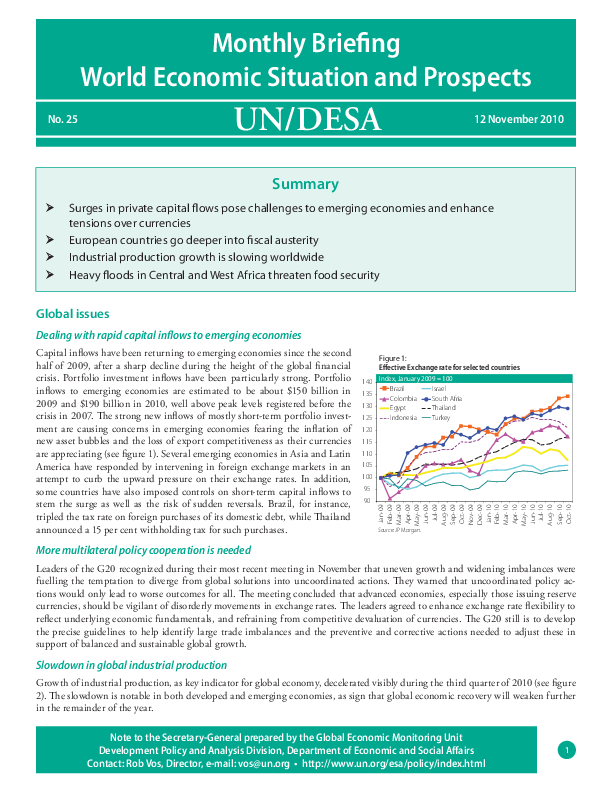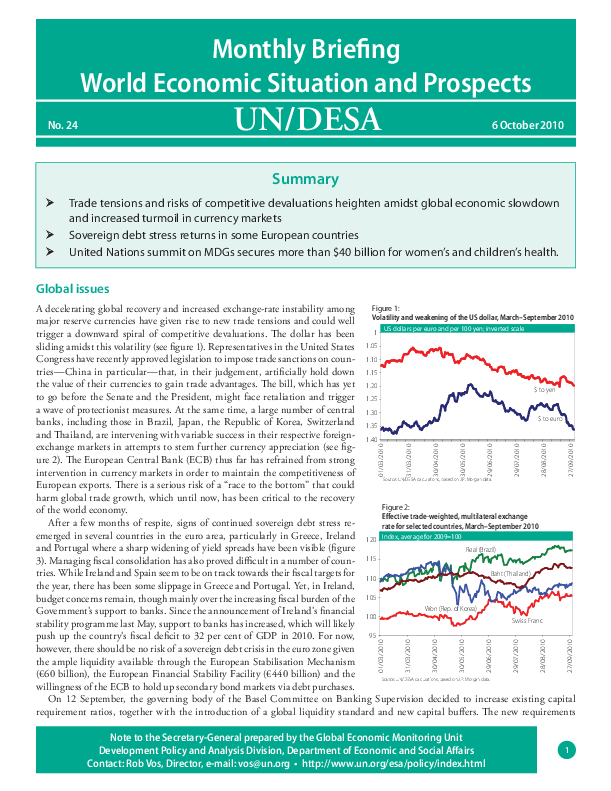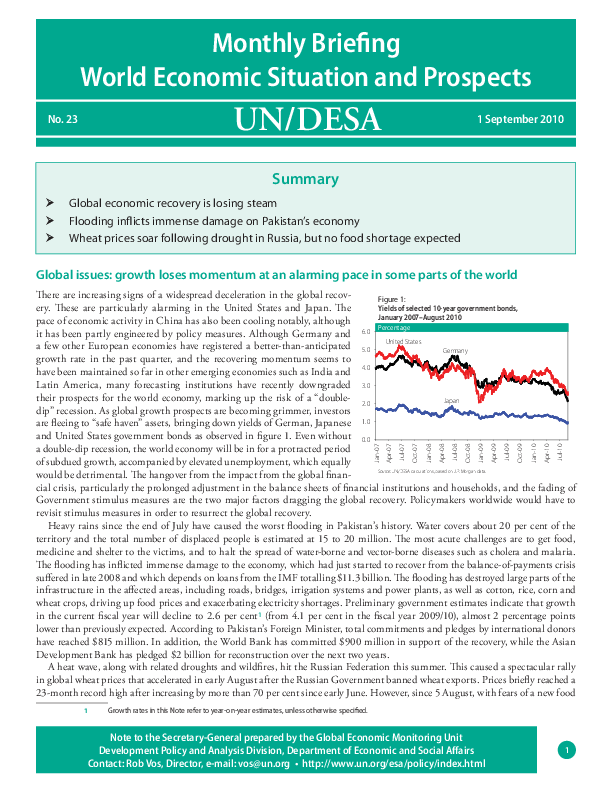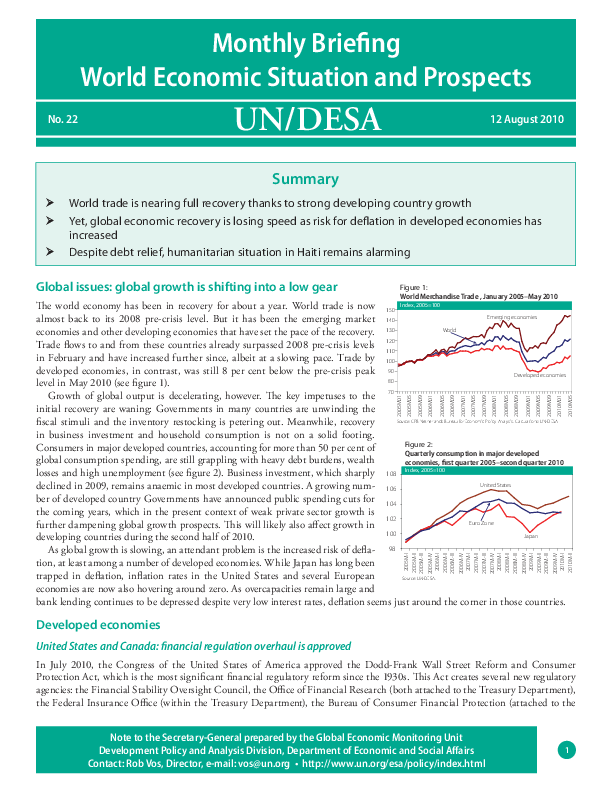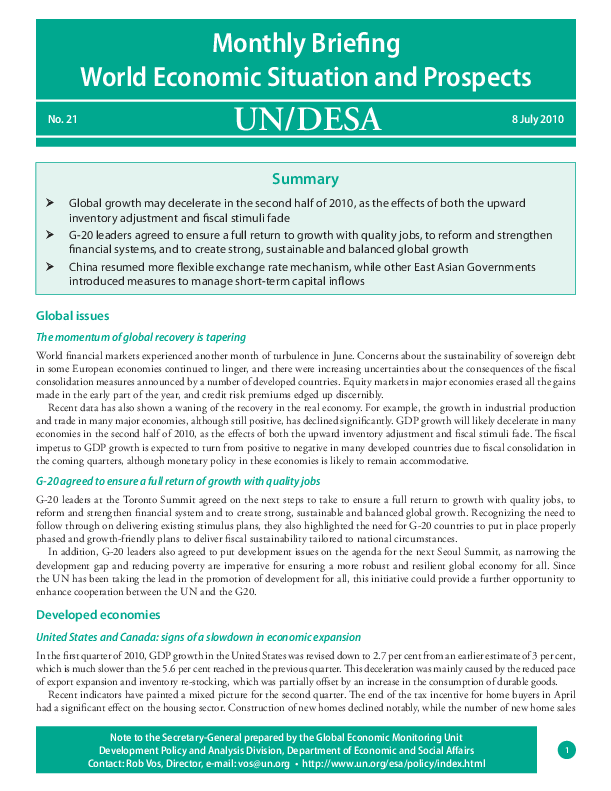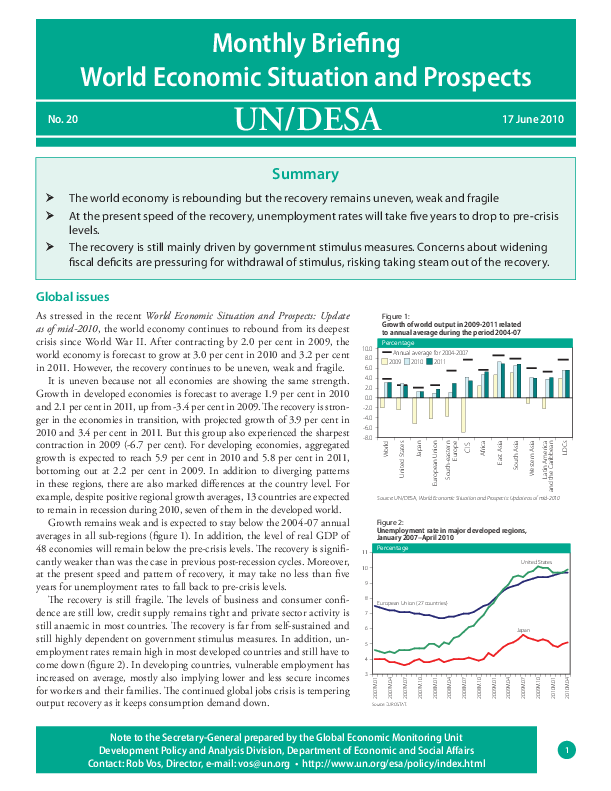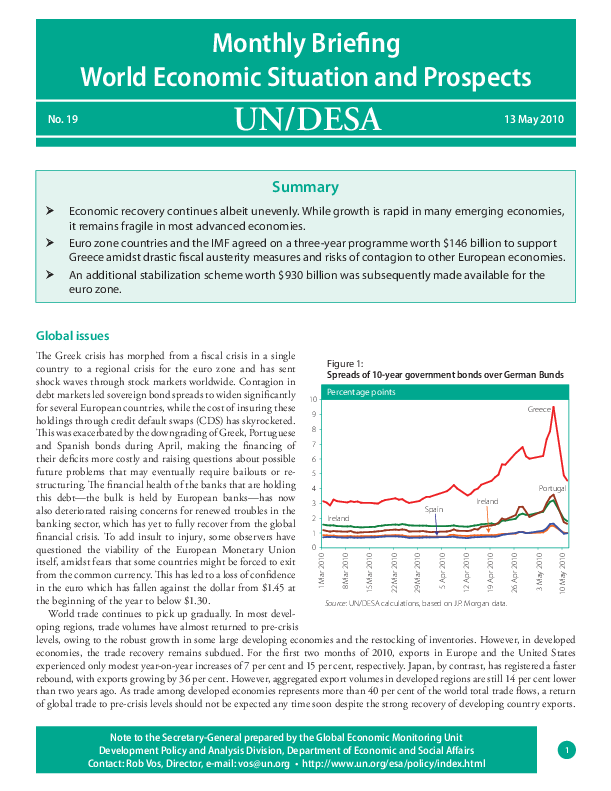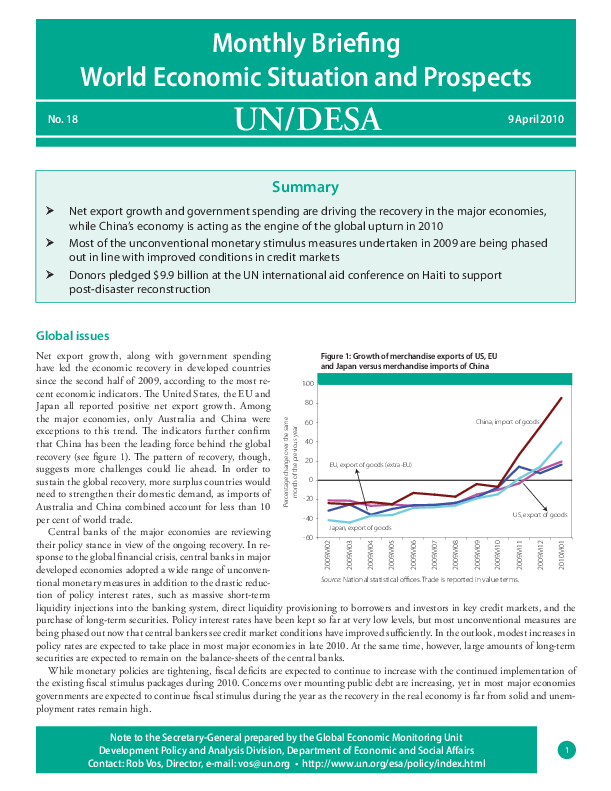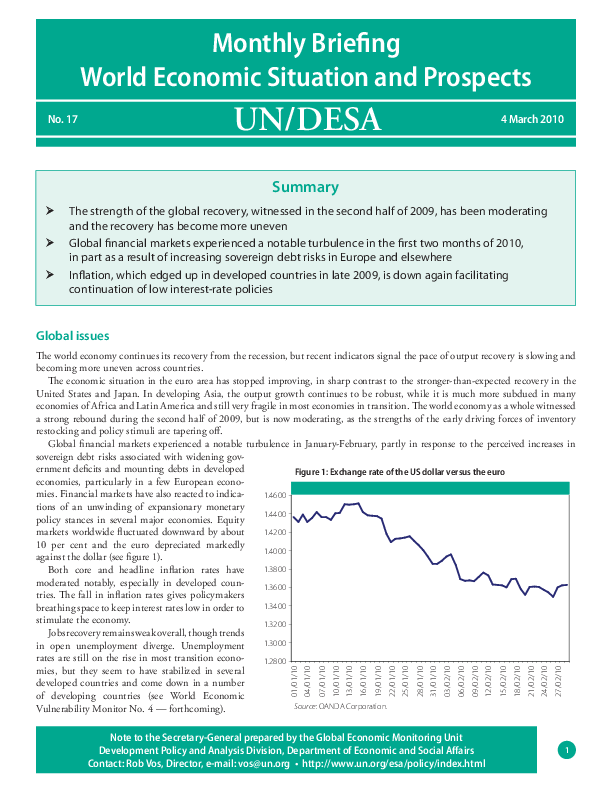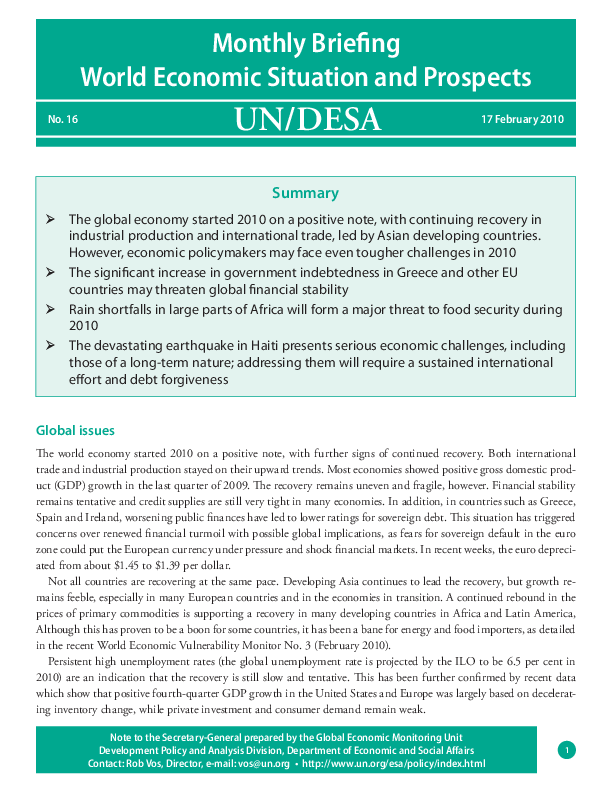Publications
Displaying 171 - 180 of 195
Summary: Surges in private capital flows pose challenges to emerging economies and enhance tensions over currencies
European countries go deeper into fiscal austerity
Industrial production gr
Summary: Trade tensions and risks of competitive devaluations heighten amidst global economic slowdown and increased turmoil in currency markets
Sovereign debt stress returns in some European countries
Summary: Global economic recovery is losing steam?
Flooding inflicts immense damage on Pakistan?s economy?
Wheat prices soar following drought in Russia, but no food shortage expected
Summary: World trade is nearing full recovery thanks to strong developing country growth
Yet, global economic recovery is losing speed as risk for deflation in developed economies has increased
Summary: Global growth may decelerate in the second half of 2010, as the effects of both the upward inventory adjustment and fiscal stimuli fade
G20 leaders agreed to ensure a full return to growth with q
Summary: The world economy is rebounding but the recovery remains uneven, weak and fragile?
At the present speed of the recovery, unemployment rates will take five years to drop to pre-crisis levels
Summary: Economic recovery continues albeit unevenly. While growth is rapid in many emerging economies, it remains fragile in most advanced economies
Euro zone countries and the IMF agreed on a three-year
Summary: Net export growth and government spending are driving the recovery in the major economies,?while China?s economy is acting as the engine of the global upturn in 2010
Most of the unconventional m
Summary: The strength of the global recovery, witnessed in the second half of 2009, has been moderating and the recovery has become more uneven
Global financial markets experienced a notable turbulence i
Summary: The global economy started 2010 on a positive note, with continuing recovery in?industrial production and international trade, led by Asian developing countries; however, economic policy
 Welcome to the United Nations
Welcome to the United Nations
